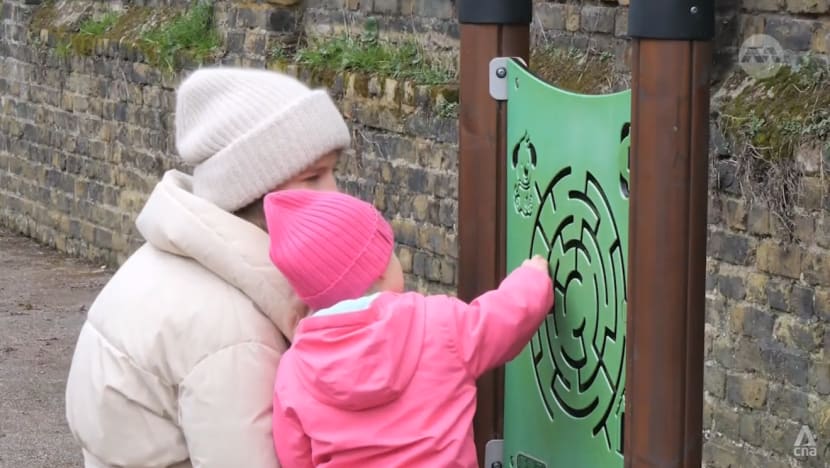Nurseries in the UK cautious about increased government support for childcare amid manpower, cost issues
The funding they get does not cover the growing costs of providing childcare, they said.

Childcare providers are closing at an alarming rate in the UK.
LONDON: Like many British families, the Jaan-Smiths use a mix of childcare solutions. When both parents are at work, the grandparents help out.
Without them, full-time childcare for their son and daughter would be too expensive, the couple said.
“We would be paying over a grand a month just for her nursery. That would be most of my salary. It would be absolutely not worth me going back to work, because I would be breaking even. And then I'd also be losing out on time with the kids,” said Mrs Zahra Jaan-Smith.
Her predicament is not unique.
On average, childcare in the UK accounts for 29 per cent of a couple’s income after government support.
Parents in England are given 15 hours of free childcare per week for three- and four-year-olds, which doubles if both parents work.
However, more help is on the way.
From April next year, working parents of two-year-olds will be able to access 15 hours of free childcare too. This support will also be extended to all children from the age of nine months from September next year.
From September 2025, all eligible children under five would get 30 hours.
The expansion of the programme will cost the British government an additional US$5 billion.
NURSERIES CAUTIOUS ABOUT CHANGES
Nurseries said they are cautious about the changes, as the funding they get does not cover the growing costs of providing childcare.
“Our highest expense is the staff. But the total staff, including our administrator ... there’s seven of us, and it’s about £60,000 (US$74,000) a year for all of us,” said St Paul’s Church Nursery School head teacher Jacqueline Moulder.
As the cost of living crisis pushes labour and energy costs up, childcare providers are closing at an alarming rate in the country that has some of the most expensive childcare in the world.
Experts said there has not been enough emphasis on the quality of childcare, and that comes down to the training and salary of those providing it.
As nurseries close, families explore other options like childminders, who can be more affordable to hire.
MORE DEMAND THAN SUPPLY
Ms Rachel Carrell saw a gap in the market and started a company, Koru Kids, to fill it. The childcare service provides after-school childcare and summer holiday care.
"The core problem is a lack of supply. In the case of what we do, home nursery, childminders, about 20 years ago, there were almost 80,000 of these in the UK. Now there’s only just over 20,000 of these,” she said.
Critics said more is being done to generate demand than supply, given that the government's focus in its latest budget was getting people back into work.
Despite the potential issues, one researcher pointed to an economic benefit of the added investment.
“We’d see this growth across our wider economy, so more women aren’t being pushed to drop out of the workforce, more skills and talent are retained across our industries across the UK,” said Ms Rachel Statham, associate director for Work And The Welfare State at think tank Institute for Public Policy Research.
She noted that those parents are also taxpayers.
Childcare is expected to be a significant issue for voters in the next general election. The vote will be a major test of whether the government has done enough to piece together the fragmented childcare system to create one coherent picture.














